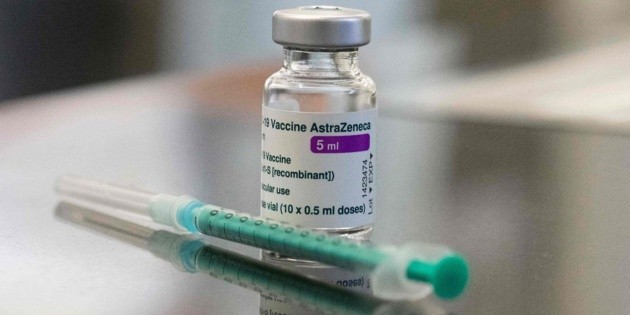
Denmark on Thursday suspended the AstraZeneca vaccine as the European Union (EU) prepares to approve Johnson & Johnson’s drug against coronavirus, on the one-year anniversary of the WHO calling COVID-19 a pandemic.
The suspension of the AstraZeneca vaccine was decided “after the reports of severe cases of clot formation of blood in people who were vaccinated, “the Danish National Health Agency said, although it stressed that” at the moment it cannot be concluded that there is a relationship between the vaccine and blood clots. “
The Anglo-Swedish vaccine is being closely monitored after several cases of people who died after receiving it, but so far no causal relationship has been established.
On Monday, Austria announced it had stopped administering a batch of laboratory vaccines after the death of a 49-year-old nurse who succumbed to “severe clotting disorders” a few days after receiving it.
Four European countries, Estonia, Lithuania, Latvia and Luxembourg immediately suspended dose vaccination of this batch, which was delivered to 17 countries and included one million vaccines.
In a preliminary investigation, the European Medicines Agency (EMA) said there was no link between the AstraZeneca vaccine and death in Austria.
British Prime Minister Boris Johnson also said on Thursday that this vaccine is “safe” and “effective”.
The EMA, which has already approved two other vaccines, Pfizer / BioNTech and Moderna, is expected to give its approval this Thursday to the Johnson & Johnson vaccine, which only requires one injection, unlike the others. they need two doses spaced several weeks apart.
In addition this new vaccine can be stored for three months at the usual temperature of the refrigerator, which facilitates its distribution.
As for the drug Pfizer / BioNTech, a study in real conditions conducted in Israel and published on Thursday, it has stated that it has an effectiveness of 97% against symptomatic cases and severe forms of the disease.
Deploying vaccination is a major challenge in the face of a virus that has killed at least two million 621,000 295 people worldwide, with more than 117 million 982,000 cases of infection, according to an AFP count.
United States, the most affected country with more than half a million dead, vaccination is accelerating.
More than 93 million doses have been injected into the country, which has placed enough orders to receive before the end of May the amount to vaccinate all American adults.
“2021 will be very tough” for COVID-19
The situation is much less favorable in Brazil, which, on the other hand, seems to be sinking into crisis. On Wednesday, the country recorded for the first time more than a thousand deaths in 24 hours.
“We are in the worst moment of the pandemic in Brazil, the rate of infection with the variants makes the epidemic even more serious. The year 2021 will remain very hard,” Margaret Dalcolmo, a pulmonologist and researcher at Fiocruz, a leading public health institute.
“The situation in Brazil is very worrying. This reminds us that areas already heavily affected by the virus are still very vulnerable to new infections,” added the director of the Pan American Health Organization (PAHO), Carissa Etienne.
Vaccination began late in this immense country that has already counted 270 thousand 656 deaths. In addition, President Jair Bolsonaro downplays the pandemic and opposes closing shops to, he says, preserving employment.
Opponent and former President Luiz Inácio Lula da Silva called on the population to vaccinate no longer to follow “any stupid decision” by the president or the Ministry of Health.
In Europe, the WHO called for it that “more be done” in the face of “an alarming situation”. Several “hot spots” remain a concern for the European Commission, such as Tyrol in Austria, Nice and the Moselle in France, Bolzano in Italy and parts of Bavaria and Saxony in Germany.
German health authorities on Thursday reported a sharp rise in infections, worried about a “third wave” in the country fueled by the various variants.
France will evacuate patients from some regions to relieve out-of-reach hospitals, especially in the Paris region.
In Italy, life expectancy has dropped by almost a year, to 82.3 years, due to the pandemic, according to official statistics.
“Hungry, isolated, abused” children in the COVID-19 pandemic
In a year, the pandemic too has “pushed back” almost all indicators which measure the development of children and adolescents in the world, warns Unicef.
“It has increased the number of children who go hungry, who are isolated, abused, anxious, living in poverty and who have been forced to marry,” said director Henrietta Fore.
Between six and seven million more children could suffer from malnutrition by 2020, a 14% increase that could translate into more than an additional 10,000 deaths per month, mainly in sub-Saharan Africa and South Asia.
In Asia, where Cambodia announced its first coronavirus death on Thursday, the threat of COVID-19 did not stop hundreds of thousands of Indian pilgrims from bathing in the sacred Ganges River on the occasion of a major Hindu festival.
OF
